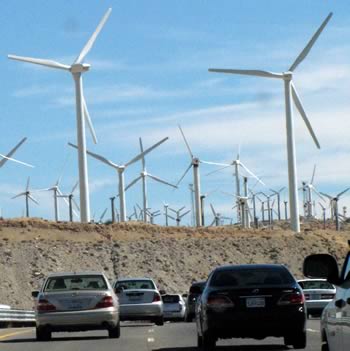Courtesy : Bizee
Energy management
What is energy management?
“Energy management” is a term that has a number of meanings, but we’re mainly concerned with the one that relates to saving energy in businesses, public-sector/government organizations, and homes:
The energy-saving meaning
When it comes to energy saving, energy management is the process of monitoring, controlling, and conserving energy in a building or organization. Typically this involves the following steps:
- Metering your energy consumption and collecting the data.
- Finding opportunities to save energy, and estimating how much energy each opportunity could save. You would typically analyze your meter data to find and quantify routine energy waste, and you might also investigate the energy savings that you could make by replacing equipment (e.g. lighting) or by upgrading your building’s insulation.
- Taking action to target the opportunities to save energy (i.e. tackling the routine waste and replacing or upgrading the inefficient equipment). Typically you’d start with the best opportunities first.
- Tracking your progress by analyzing your meter data to see how well your energy-saving efforts have worked.
(And then back to step 2, and the cycle continues…)
To confuse matters, many people use “energy management” to refer specifically to those energy-saving efforts that focus on making better use of existing buildings and equipment. Strictly speaking, this limits things to the behavioural aspects of energy saving (i.e. encouraging people to use less energy by raising energy awareness), although the use of cheap control equipment such as timer switches is often included in the definition as well.
The above four-step process applies either way – it’s entirely up to you whether you consider energy-saving measures that involve buying new equipment or upgrading building fabric.
Other meanings

Photo by Valerie Everett
It’s not just about saving energy in buildings – the term “energy management” is also used in other fields:
- It’s something that energy suppliers (or utility companies) do to ensure that their power stations and renewable energy sources generate enough energy to meet demand (the amount of energy that their customers need).
- It’s used to refer to techniques for managing and controlling one’s own levels of personal energy. We’re far from qualified to say anything more about this!
- It also has relevance in aviation – it’s a skill that aircraft pilots learn in some shape or form. We know nothing about aircraft energy management, but we can at least manage a picture of a man on a plane…
Anyway, from now on we will pay no more attention to these other definitions – all further references to “energy management” will be to the energy-saving sort described above.
Home energy management
Whilst energy management has been popular in larger buildings for a long time, it has only recently started catching on in homes. Most homeowners aren’t even aware of the term, and take more of a haphazard, flying-blind approach to reducing their energy consumption…
But the monitoring- and results-driven approach used by professional energy managers is just as effective in the home as it is in larger buildings.
So, if you’re a homeowner looking to save energy, don’t be put off by the fact that this article focuses more on non-residential buildings. Most of the principles that apply to businesses and other organizations are also applicable to homes. Certainly the four-step process introduced above and detailed below is entirely applicable to home energy management.
Why is it important?
Energy management is the key to saving energy in your organization. Much of the importance of energy saving stems from the global need to save energy – this global need affects energy prices, emissions targets, and legislation, all of which lead to several compelling reasons why you should save energy at your organization specifically.
The global need to save energy
If it wasn’t for the global need to save energy, the term “energy management” might never have even been coined… Globally we need to save energy in order to:
- Reduce the damage that we’re doing to our planet, Earth. As a human race we would probably find things rather difficult without the Earth, so it makes good sense to try to make it last.
- Reduce our dependence on the fossil fuels that are becoming increasingly limited in supply.

